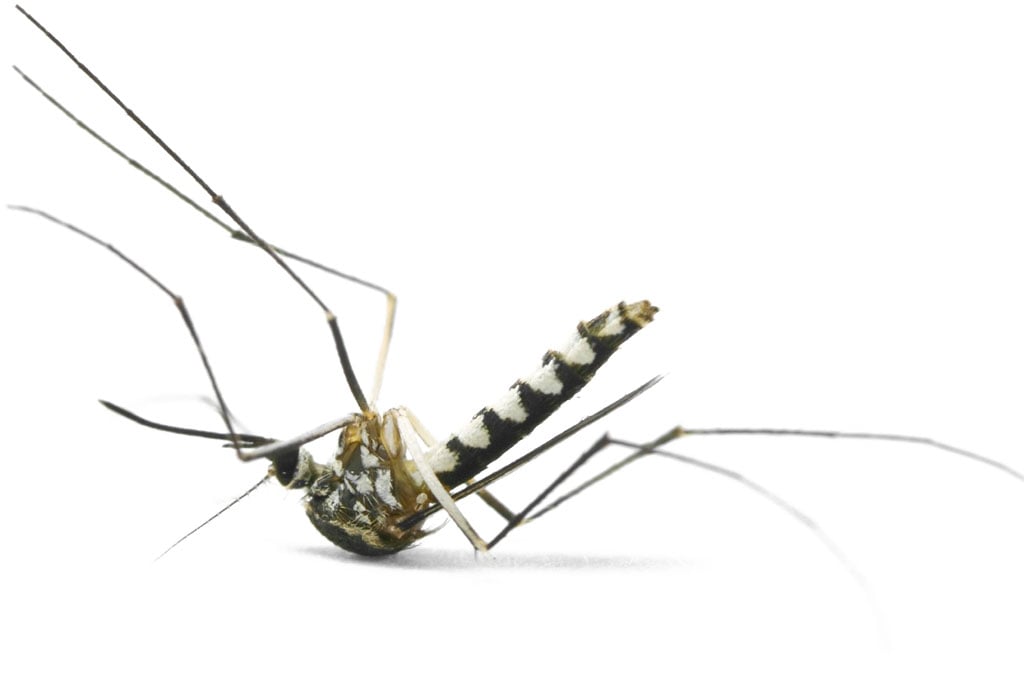Spike in malaria deaths puzzles Kibuku leaders

A mosquito. PHOTO/COURTESY
The Indoor Residual Spraying (IRS) programme has put local leaders in Kibuku District and officials from the Ministry of Health on a collision path.
The friction stems from a December 22, 2022, decision by the district council to stop the programme on account of its supposed failure to reduce malaria cases.
“Several people have outrightly refused to have their homes sprayed. This [IRS] is a programme that has been running for the last eight years, but it hasn’t made any impact. Instead we’re witnessing increasing malarial cases in the district,” Mr Augustine Moleka Majanga, the district secretary for health and education, said.
Mr Majanga, who is also the district councillor representing Bulangira Town Council, advised the Health ministry to instead invest its energies into alternatives such as distribution of mosquito nets.
The Health ministry insists that its IRS programme is not misguided. A health team including entomologists, Dr Charles Ntege and Dr Rogers Naturinda, agrees that the programme is on track to hit the bull’s eye.
“These drugs have been scientifically proven to be good in the fight against malaria. It’s better for people to embrace the programme so as to combat the high malaria prevalence which has remained a killer disease,” Dr Ntege said.
Dr Godfrey Buyinza, the District Health Officer in Kibuku, confirmed the upsurge of malaria cases in the district, adding that the spike between May and June 2020 “was extremely high.”
“The situation hasn’t improved because the malaria cases are still high. The district registers between 4,600 to 7,000 cases per week,” Dr Buyinza revealed.
The positivity rate is between 60 and 80 percent, with an average of 74 percent, implying that at least 50 to 60 cases are malaria-related. The death rate registered in health facilities oscillates between two and three.
“The biggest challenge is that the community-based cases tend to delay coming to the facility and by the time they come the patient is anaemic and very weak. Most of these deaths are in communities,” Dr Buyinza told Monitor.
He further revealed that a blood shortage has exacerbated matters, with the district “receiv[ing] between 35 to 50 units of blood per week.” This is not adequate enough to address the district’s “high blood transfusion rate.”
In fact, because of this dire state of affairs, Mr Majanja has faulted the Health ministry for failing to explain why the IRS programme hasn’t stopped the upsurge in malaria cases. He said labelling councillors “as saboteurs of a government programme” will not deter them since “we are on the ground.”
Mr Sulait Ikoba Mugisu, a district councillor representing Buseta sub-county, told Monitor that he has “felt the pain of the IRS programme” firsthand.
“I lost two of my children after they died due to severe malaria. The malaria burden being experienced in the last couple of years is extremely high compared to before this programme was launched,” he said.
Ms Ruth Logose, the Kagumu Sub-county district councillor, said the number of children being claimed by malaria in the district is disturbingly high.
“It drains blood and in a few minutes that child is pronounced dead,” she revealed.
Mr Mohammed Nakeba, the Kibuku LC5 chairman said that the IRS programme has met strong resistance from the communities due to the upsurge in malaria-related deaths.
“The outcry of the community is understandable,” he said, adding, “We are on a daily basis getting these concerns that children are dying as a result of urinating blood caused by severe malaria.”
Ms Eva Kwesiga, the Kibuku Resident District Commissioner, warned parents against self-medication, saying this is contributing to the several malaria-related deaths in the district.
The IRS programme is funded by USAID under the Presidential Malaria Initiative and implemented by district local governments.





